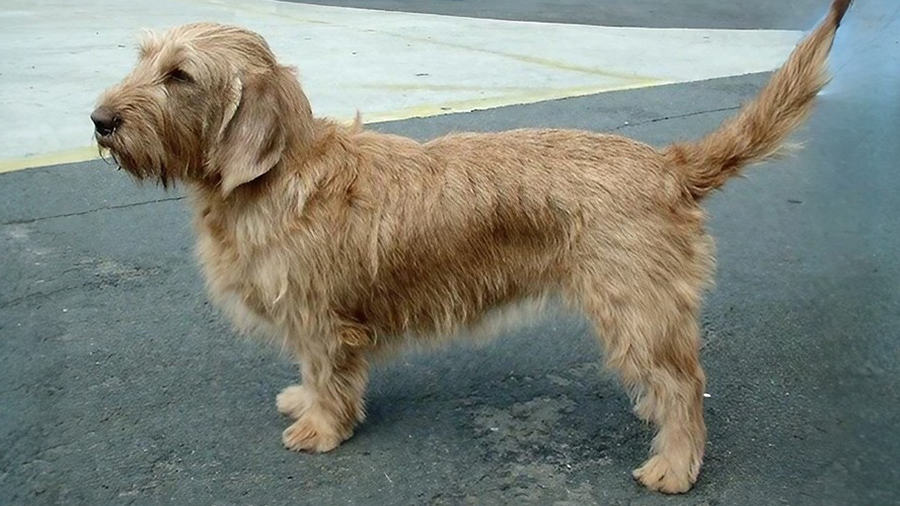In a pivotal move towards canine health, The Kennel Club has officially sanctioned a new DNA testing scheme for primary open angle glaucoma (POAG-4) in the Basset Fauve de Bretagne breed. This decision comes subsequent to a thorough consultation with the breed’s health coordinator, acting on behalf of the breed clubs, and aims to enhance the genetic health profile of the breed by identifying and managing the occurrence of this specific mutation.
POAG-4 is a mutation believed to be uniquely present in the Basset Fauve de Bretagne, causing a slight elevation in the fluid pressure within the eye, which gradually culminates in blindness. The disease, categorised as autosomal-recessive, necessitates a dog to inherit two copies of an abnormal gene (one each from its mother and father) for its health to be adversely impacted. The introduction of this testing scheme is poised to be a significant step in managing, and potentially mitigating, the spread of this mutation within the breed.
Understanding the POAG-4 Mutation and Testing Outcomes
The testing scheme will categorise tested dogs into one of three possible outcomes: Clear, Carrier, or Affected. A “Clear” result indicates that the dog does not possess any copies of the abnormal gene associated with the disease, thereby being highly unlikely to be clinically affected and will only pass on a normal gene copy to its offspring. Conversely, a “Carrier” possesses one copy of the normal gene and one of the abnormal gene, with a low likelihood of being clinically affected, but may pass on either gene copy to a puppy. Lastly, an “Affected” dog, having two copies of the abnormal gene, will likely be clinically affected by the disorder and will pass one copy of the abnormal gene to any potential progeny.
The results of these tests will be incorporated into the dog’s registration details, prompting the publication of the result in the subsequent available Breed Records Supplement and also on the Health Test Results Finder on The Kennel Club website. Moreover, results for dogs that have already been tested can also be recorded, albeit owners are required to submit copies of the DNA certificates themselves by scanning and emailing them to The Kennel Club Health test results.
Mandatory Microchip Recording and Laboratory Criteria
It is imperative for owners to note that, since August 2018, it has been mandatory for a dog’s microchip (or tattoo) to be recorded alongside either the dog’s registered name or registered number on any DNA certificates. Test results issued post this date without these identifying features will not be accepted. The Kennel Club maintains a set of criteria that DNA testing laboratories must adhere to, in order to safeguard the integrity of results appearing on a dog’s records. The list of laboratories from which results are accepted has been updated, and customers are strongly advised to ensure their chosen laboratory is included on the revised list if they wish The Kennel Club to record and publish the results. Non-inclusion of results from laboratories not on this list will not be recorded.
To ascertain which laboratories The Kennel Club can record results from for this test, and which laboratories will send results directly to The Kennel Club, individuals are encouraged to refer to the page about POAG-4 on The Kennel Club’s website. It is important to note that these listings may not be exhaustive, and other labs may offer the tests. For information on which DNA tests are pertinent to specific breeds, a visit to The Kennel Club’s website is recommended.
Collaborative Efforts for Canine Health
The Kennel Club continually reviews DNA testing schemes in partnership with breed clubs, ensuring that breeders are furnished with resources that assist them in making informed and responsible breeding decisions. Working alongside breed clubs and breed health coordinators, The Kennel Club is dedicated to enhancing the health of pedigree dogs and is open to considering a club’s request to add a new DNA test to its lists. Typically, a formal request from the breed’s health coordinator or a majority request from the breed clubs is required to initiate this.
In conclusion, this new DNA testing scheme for POAG-4 in the Basset Fauve de Bretagne, approved by The Kennel Club, marks a significant stride towards ensuring the genetic health and sustainability of the breed. By identifying and managing the occurrence of this mutation, breeders and owners alike can make informed decisions, safeguarding the future health of these beloved dogs.








